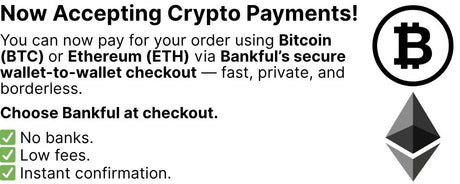In any crisis, disaster, or long-term emergency, no one survives alone. While personal preparedness is essential, your ability to rely on—and contribute to—a supportive survival community can dramatically increase your odds of long-term survival. Pillar 12 focuses on building and sustaining strong, resilient networks of people who share skills, resources, and responsibility in times of crisis.
Why Community and Support Networks Matter
From natural disasters to grid-down scenarios, survival isn’t just about gear and skills—it’s also about mutual trust, teamwork, and collaboration. A prepper network or mutual assistance group (MAG) helps you:
- Share resources like food, water, tools, and medical supplies
- Exchange knowledge in areas like first aid, homesteading, or off-grid energy
- Provide security and defense in vulnerable scenarios
- Boost morale and emotional resilience during hard times
Key Components of a Strong Preparedness Community
- Building Relationships: Connect with neighbors, family, local preppers, and survival-minded groups before a crisis happens. Use meetups, ham radio clubs, or mutual aid forums to find like-minded individuals.
- Mutual Aid Plans: Prearranged agreements to help each other with shelter, supplies, or defense in emergencies. These can be informal or structured agreements within a MAG.
- Knowledge Sharing: Skill-building workshops, survival training sessions, or even shared books and digital resources can keep everyone sharp and prepared.
- Division of Labor: Assign roles in your group based on skillsets—such as medical care, security, food prep, or communications—for maximum efficiency.
How to Find or Start a Survival Network
Start by looking locally: attend community preparedness meetings, take CERT (Community Emergency Response Team) training, or join ham radio clubs. Use online forums and groups to connect with nearby preppers who share your values and mindset. And don’t underestimate the power of in-person relationships—trust is built face to face.
Trusted Non-Government Preparedness Resources
If you're looking for advice outside of official government channels, consider tapping into the robust world of independent survival communities:
- ThePrepared.com – Rational, gear-tested prepping guides and community discussions for serious survivalists.
- Modern Survival Blog – Daily insights on home security, homesteading, and real-world survival strategies.
- SurvivalBlog.com – Founded by James Wesley Rawles, with deep coverage on MAGs and off-grid preparedness.
- SurvivalistBoards – One of the largest survival forums for exchanging ideas on everything from food storage to community defense plans.
- reddit.com/r/Survival – r/survival is a forum for sharing and discussion of the topic of wilderness survival. Strangers on the internet are not an authoritative source of information. Your training, preparedness, health well being and safety are your own responsibility!
- OffGridSurvival.com – Focused on surviving real-world threats and living beyond the grid with others.
Preparing Together: Why It Works
Survival is about more than having the right gear—it's about working together under pressure. Whether you’re sharing seeds in a community garden, building a comms network with neighbors, or coordinating defense plans, the benefits of a community-first approach are endless. In a real-world disaster, your network might be your greatest asset.
Don’t Go It Alone—Build Your Survival Tribe
Take the next step by talking to your neighbors, starting or joining a MAG, or attending local preparedness events. And if you need high-quality survival gear, shop Mountain Ready—we offer trusted equipment that supports you and your tribe through any crisis.
Prepare Today, So You’re Ready Tomorrow
Investing in relationships is just as important as investing in gear. Start building your community resilience plan now, and take the final step toward true preparedness.


